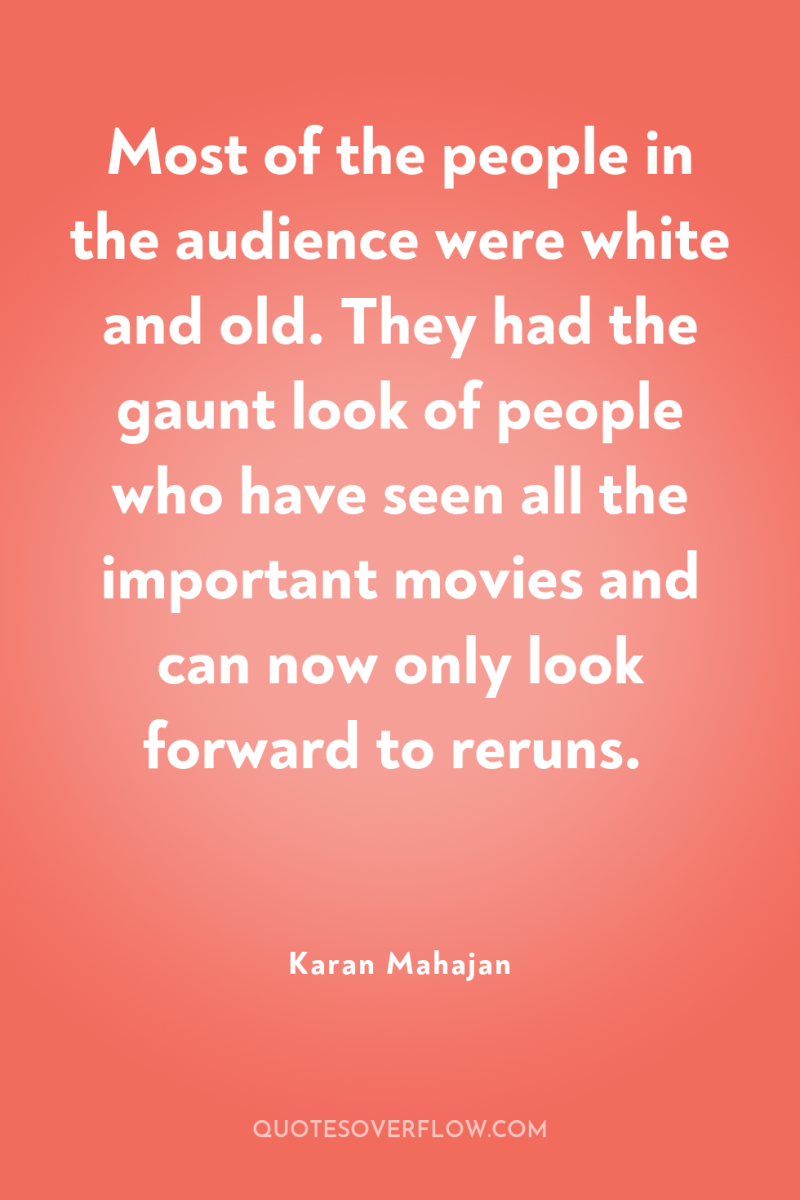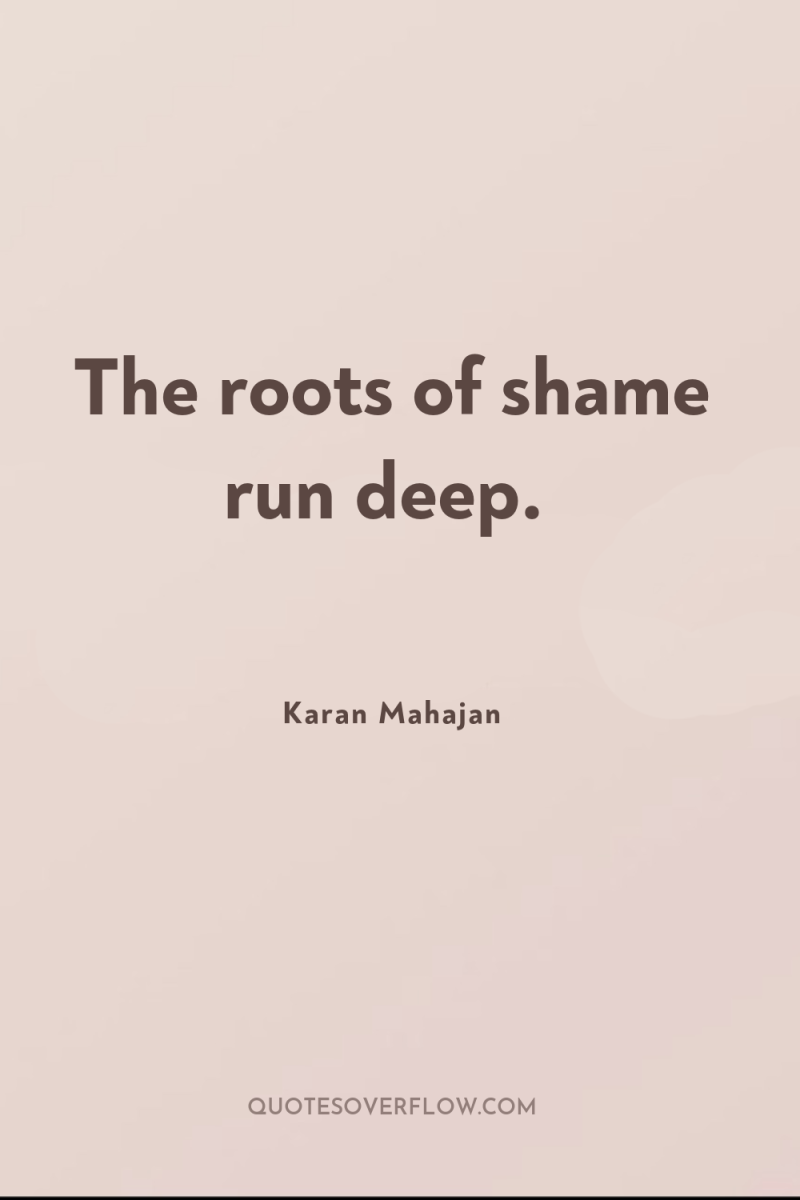1
And you know what happens when a bomb goes off? The truth about people comes out. Men leave their children and run away. Shopkeepers push aside wives and try to save their cash. People come and loot the shops. A blast reveals the truth about places. Don't forget what you're doing is noble.Karan Mahajan

2
Most of the people in the audience were white and old. They had the gaunt look of people who have seen all the important movies and can now only look forward to reruns.Karan Mahajan

3
What if I've died a long time ago and come here? he wondered. What if the defining characteristic of hell is that you're locked in an endless, blind battle to reform it?Karan Mahajan

4
The roots of shame run deep.Karan Mahajan
5
Every child is a packet of disappointments, hurts, dangers.Karan Mahajan
6
To ask a child to feel sympathy for the poor is harder than getting him to feel sympathy for a chicken or a goat–at least you can see a goat being slaughtered.Karan Mahajan
7
Like men who have failed together, they wanted nothing more than to never see each other again.Karan Mahajan
8
No action is safe from meaning.Karan Mahajan
9
Every way he turned, his past was detonated, revealing tunnels and alternative routes under the packed, settled earth of the present.Karan Mahajan
10
Silence is the small man’s only defense.Karan Mahajan
11
During these years in the small-talk wilderness, I also wondered why Americans valued friendliness with commerce so much. Was handing over cash the sacred rite of American capitalism–and of American life? On a day that I don’t spend money in America, I feel oddly depressed. It’s my main form of social interaction–as it is for millions of Americans who live alone or away from their families.Karan Mahajan
12
Artists, who are selfish people, become anxious around the self-sacrificingKaran Mahajan
13
When we talk about 9/11 and 26/11 - which is the shorthand for the Mumbai attacks in 2008 - we're talking about the most successful terrorist attacks in history. When you start trying to study the most successful event of its kind, it actually doesn't make for great fiction because there isn't the kind of failure in it that fiction thrives on.Karan Mahajan
14
'This Is Not That Dawn' is remarkable in part for its careful and sensitive attention to women's lives - and also for its harsh critique of men and their failure to stop violence.Karan Mahajan
15
The thing about a failure is that it is possible to deny it forever.Karan Mahajan
16
We discount the physical, when, in fact, much of life is physical. People's personalities are partly formed by, or in response to, how they take up space; the physical mask has some relation, howsoever obscure, to the mental work happening underneath.Karan Mahajan
17
When you've finished reading every last thing by a famous writer, literary convention holds that you move on to his or her letters, the DVD extras peddled by publishers.Karan Mahajan
18
Novelists get to say plenty in their massive tomes; rock singers only get four-minute songs with two verses and a chorus' worth of lyrics, and so there's a real pleasure in accessing the intelligence behind the music, even if it doesn't qualify as 'great literature.'Karan Mahajan
19
I remember returning to Bangalore after a few months of travel and seeing it as a first-world city, like New York or San Francisco. This may be obvious to some people, but I grew up in Delhi, and I had no experience of how someone from a 'Tier 2' city may view a 'Tier 1' city. You really do emigrate between worlds when you come from those towns.Karan Mahajan
20
In Delhi, where I grew up, commerce is brusque. You don't ask each other how your day has been. You might not even smile. I'm not saying this is ideal - it's how it is. You're tied together by a transaction. The customer doesn't tremble before complaining about how cold his food is.Karan Mahajan